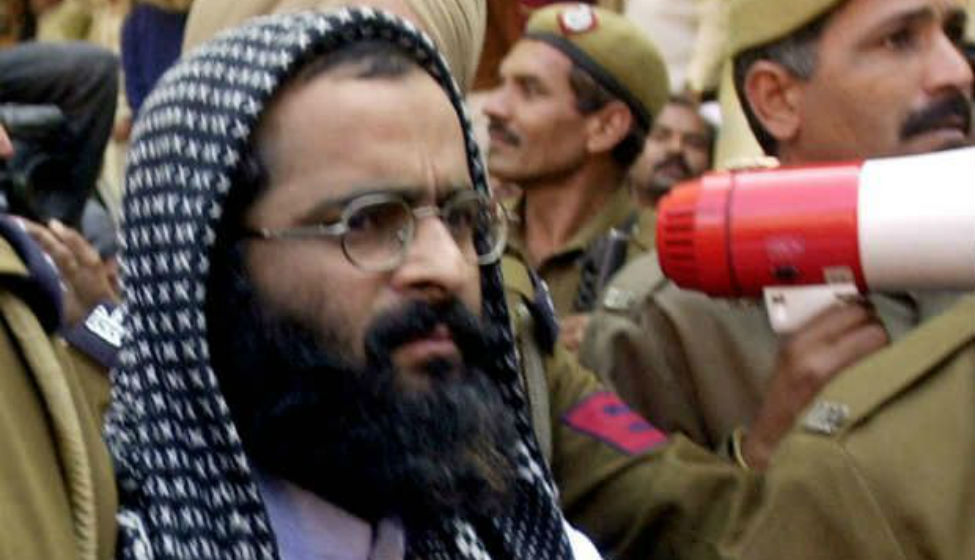When five Jaish-e-Muhammad fidayeen attacked the Parliament on December 13, 2001, no one in Kashmir had thought the attack would result in the hanging of Afzal Guru, a Kashmiri man, 12 years later. A resident of Sopore in Baramulla, Guru had dropped out of medical college to become a militant in the 90s but shunned the violent path to finish graduation in Delhi. Afterwards, he married the woman he loved, Tabassum, and often traveled between Srinagar and Delhi for his pharmaceutical business.
Two days after the attack on Parliament, Delhi police said circumstantial evidence suggests the five Jaish fidayeen were helped by Guru, his cousin, Showkat Hussian, his wife, Afsan nee Navjot Sandhu, and SAR Geelani, another Kashmiri who taught Arabic in Delhi, Zakir Hussain. The four were arrested and charged with waging war against the country, criminal conspiracy, murder and attempt to murder under POTA (Prevention of Terrorism Act of 2002). Police said Guru had played the main role. On December 29, the court send him to 10-days police remand and appointed Seema Gulati as his lawyer who refused to defend Guru after some time. Charges were filed against the four accused in June 2002. The police also made a confessional video statement of Guru that was played on news channels. Guru later said the confession was extracted from him after torture and threat to his family.
On December 8, 2002, the POTA court, on the basis of circumstantial evidence, awarded capital punishment to Guru and Hussian and Geelani, while Afsan was sentenced to five years for concealing the plot. In 2003, Delhi High Court acquitted Geelani and Afsan but dismissed the appeals of Guru and Hussian. Afsan, after her release, left her toddler son with her in-laws and returned to her parents and previous religion, Sikhism, in Punjab.
On August 4, 2005, the Supreme Court upheld the conviction of Guru, but commuted Hussain's death sentence to 10 years imprisonment. The Supreme Court observed: ''There is no evidence to suggest Guru belonged to any terrorist group or organisation. But as is the case with most conspiracies, there is and could be no direct evidence of the agreement amounting to criminal conspiracy. The circumstances, cumulatively weighed unerringly point to the collaboration of the accused with the slain fidayeen. The incident which resulted in heavy casualties, had shaken the entire nation, and the collective conscience of the society will only be satisfied if capital punishment is awarded to the offender.”
On February 9, 2005, Geelani was seriously wounded when gunmen fired five bullets at him from close range. He was shifted to AIIMS where he recovered after several surgeries.
Despite threats, Geelani has moved out of Delhi and continues to call Guru's hanging as the miscarriage of justice. He believes Guru was implicated by police. In 2006, Guru's wife Tabasum Guru filed a mercy petition with President A.P.J. Abdul Kalam, but it was later learned that the mercy petition was never brought to his notice.
In June 2007, Supreme Court dismissed Guru's plea seeking review of his death sentence, saying "there is no merit" in it. Hussain was released from Delhi's Tihar Jail in December 2010 due to his good behaviour. On June 23, 2010, the home ministry wrote to President Pranab Mukherjee to reject the mercy petition of Guru.
On Feb 3, 2013, Guru's mercy petition was rejected and six days later he was hanged without prior information to his family, though it is mandatory under the law. The decision to hang Guru in secret was condemned by rights groups in India and abroad. Omar Abdullah, the then chief minister, also regretted that Guru's family was not allowed to meet him before his hanging.
After Guru was arrested, Tabassum, a paramedic in a private hospital at Sopore, had shifted to her parent's home along with her son Ghalib Guru. She would often spend her days in the hospital with Ghalib by her side. Last year, Ghalib was ranked 19th in class X board exams in Kashmir. He is now aspiring to become a doctor.
Geelani, despite having been fatally attacked, continues to call Guru a martyr. On February 16, he was arrested on charges of sedition for convening a Press Club event, where Guru and JKLF founder Maqbool Bhat, another Kashmiri, who was hanged in the 1980s for killing an Indian diplomat in London, were referred to as “martyrs”. He was granted relief on March 19, after his counsel argued that the event was supposed to be an intellectual discussion on the Kashmir issue, and that it had not incited any violence.
Guru's hanging, many people, including Congress leaders like P. Chidambaram, said was avoidable. But due to pressure from the BJP and to appease the right-wingers, the Congress was forced to hang Guru in secret. In one of the letters, which Guru wrote to Kashmiri hardliner Syed Ali Shah Geelani, said: ''I have told him (jail superintendent) that demilitarising Kashmir is the first step towards resolving the Kashmir conflict, and my hanging will not end the conflict.''
He also wrote: “I am ashamed that my family has filed a mercy petition. I apologise to my people. I got carried away by the insistence of my friends and sympathisers.''
In Kashmir, Guru is considered a martyr, who was framed by Delhi police with the help of some Kashmiri police officers who had intimidated him even after he left militancy and started a new life.






